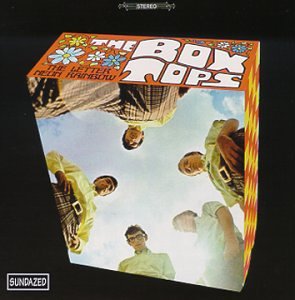 Who here owns an iPod? Who here doesn't own an iPod because they think it's ridiculous that iTunes locks you down to a single brand of MP3 player with its purchased tracks so refuses to use it out of anger?
Who here owns an iPod? Who here doesn't own an iPod because they think it's ridiculous that iTunes locks you down to a single brand of MP3 player with its purchased tracks so refuses to use it out of anger?Well, if you answered 'yes' to either of those questions, a letter Steve Jobs put up on apple.com today entitled 'Thoughts on Music' may be of interest to you.
In it, Jobs tries to lay out exactly why the iTunes ecosystem works the way he does. Essentially puts the blame on the record companies and restrictions they had in licensing songs for purchase off of iTunes.
Fundamentally most of his points focus on the fact that the large majority of music that is sold, is purchased via CD. This format contains no encryption, allowing the free copying from the disc to any number of devices.
To back up his claim he trots out some numbers. He says that the average iPod owner has about 22 iTunes purchased tracks on their iPod and that the average iPod contains about 1000 songs and is almost always filled with music. He continues:
[U]nder 3% of the music on the average iPod, is purchased from the iTunes store and protected with a DRM. The remaining 97% of the music is unprotected and playable on any player that can play the open formats. Its hard to believe that just 3% of the music on the average iPod is enough to lock users into buying only iPods in the future. And since 97% of the music on the average iPod was not purchased from the iTunes store, iPod users are clearly not locked into the iTunes store to acquire their music.Jobs then argues that, were the situation up to him, there would be no DRM on music and that all tracks sold by Apple on the iTunes store would be freely moveable from one portable music player to the next.
Continue on for the rest of my take
As far as opening FairPlay DRM system to other online music vendors, Jobs states that Apple itself has a difficult time keeping its entire chain protected (and the contracts with the record companies force Apple to fix the encryption any time it is broken or else they can remove their music from the iTunes store) so adding numerous other companies into the mix would increase the likelihood that the software will be cracked and introduce too many weak links in the chain, preventing the seamless updating that goes on now when the FairPlay system is broken.
The letter, if taken at face value, is a nice outline to how Apple would like to be viewed. A champion of music listeners rights and the victim of those big, bad record companies. He tries to label the music labels as hypocrites, saying "So if the music companies are selling over 90 percent of their music DRM-free, what benefits do they get from selling the remaining small percentage of their music encumbered with a DRM system?"
What makes that statement so interesting though, is the fact that it hinges on the fact that the current distribution media is not DRMed. The problem is that you can't argue that just because the previous ecosystem (before the internet and online piracy became a serious issue) doesn't have protection for this issue, that it shouldn't be pursued in the future. Where is the legal/moral argument that DRM and DMCA is inherently flawed? Instead we get weak arguments about the difficulties in applying DRM to a previously open system.
Even though this letter is entirely focused on music, you can see its relevance to video downloads as well. So if you look at the statement above and replace music companies with movie or TV studios, you'll see that his justification for DRM free media isn't really valid. All of the video that is sold today (anything on DVD) is protected by a form of DRM (a completely broken and for all intents and purposes now open system) so should it be sold online with DRM?
There are other points about all DRM systems being breakable that he makes:
Why would the big four music companies agree to let Apple and others distribute their music without using DRM systems to protect it? The simplest answer is because DRMs haven’t worked, and may never work, to halt music piracy. Though the big four music companies require that all their music sold online be protected with DRMs, these same music companies continue to sell billions of CDs a year which contain completely unprotected music. That’s right! No DRM system was ever developed for the CD, so all the music distributed on CDs can be easily uploaded to the Internet, then (illegally) downloaded and played on any computer or player.
I can agree with this poitn but the faulty logic on the other argument makes me question the validity of his other points.
I'm also slightly put off by the fact that he limits the discussion entirely to music. This makes me think he's simply picking a medium in which they have more of a position of influence. Not that there's anything wrong with that; it just shows that they're unwilling to say that they have a strong opinion about how ALL copyrighted media should be distributed digitally.
In the end, I think most people get frustrated by the existence of DRM. It's aggravating when some record company puts a rootkit (bad Sony!) on your CD so that you don't rip it onto your iPod. Still, I have a hard time believing that Apple would really rather sell music that didn't lock you into continually buying iPods.
Realistically, I think this is an easy argument for Jobs to make because he knows that DRM free is not likely to happen. With all the criticism Apple gets for not opening its DRM, this is an opportunity to shift the blame to a third party. The paragraph about not opening FairPlay was a far briefer than the arguments about why DRM is bad and how great things are with CDs.
I am a huge fan of my iPod and would much rather be locked in with a company like Apple that's not trying to license its DRM scheme when compared to others that are actively trying to make money by locking down the system (cough::Microsoft::cough). I just am not quite sure what to make of this letter. If anyone has a better opinion, I'd be glad to hear it.



